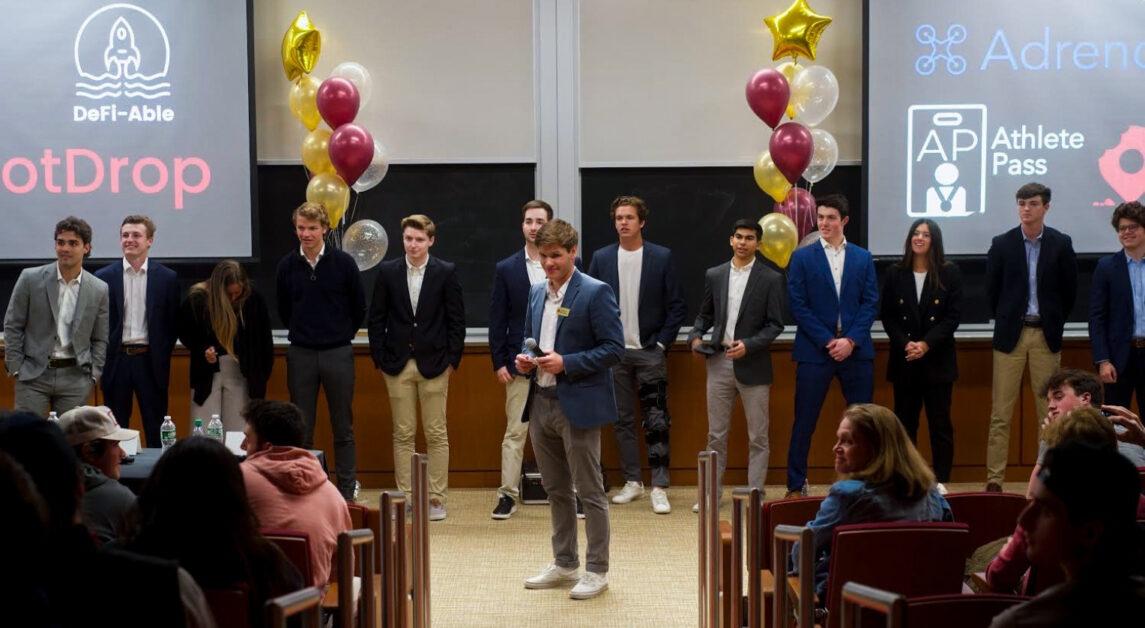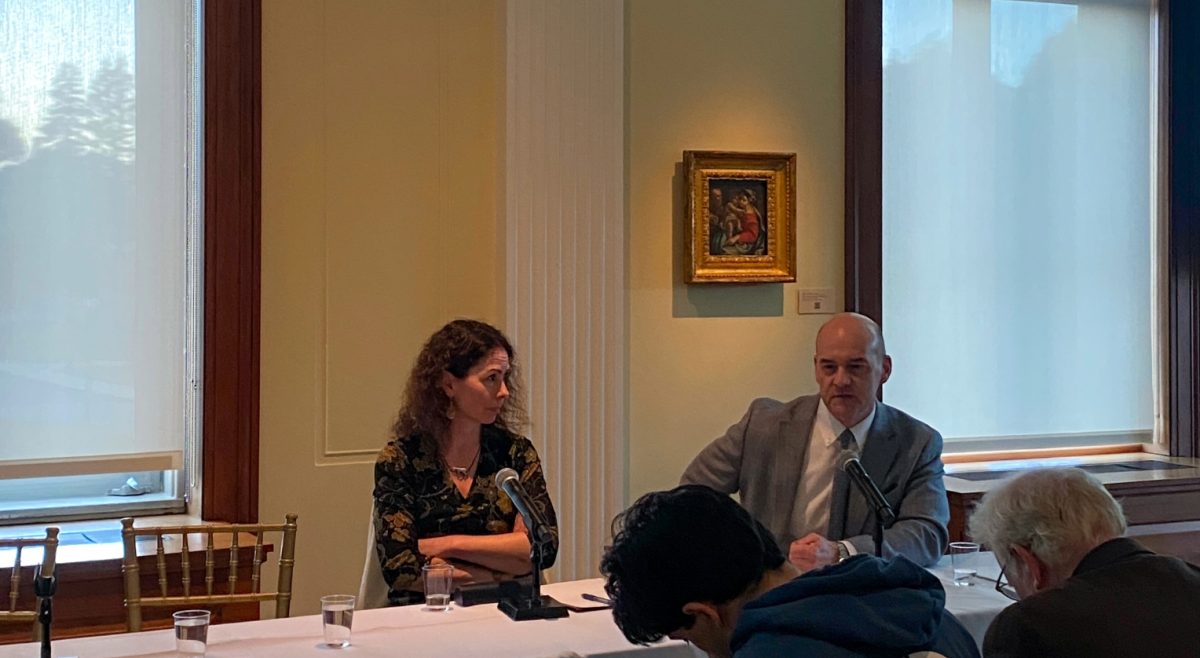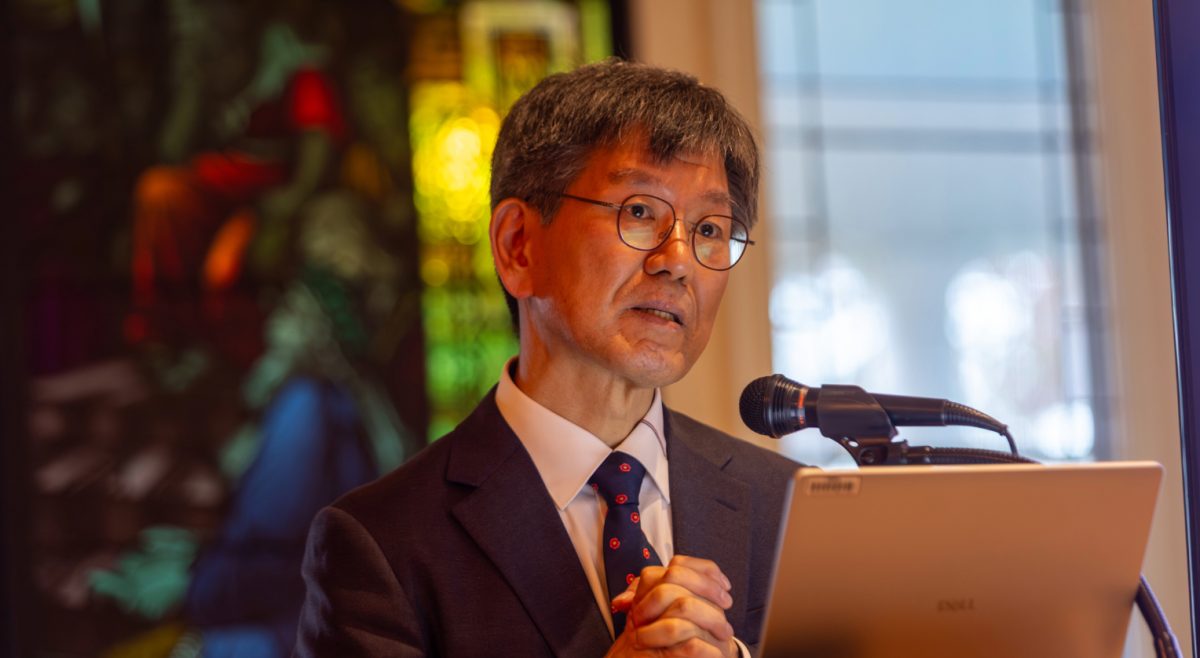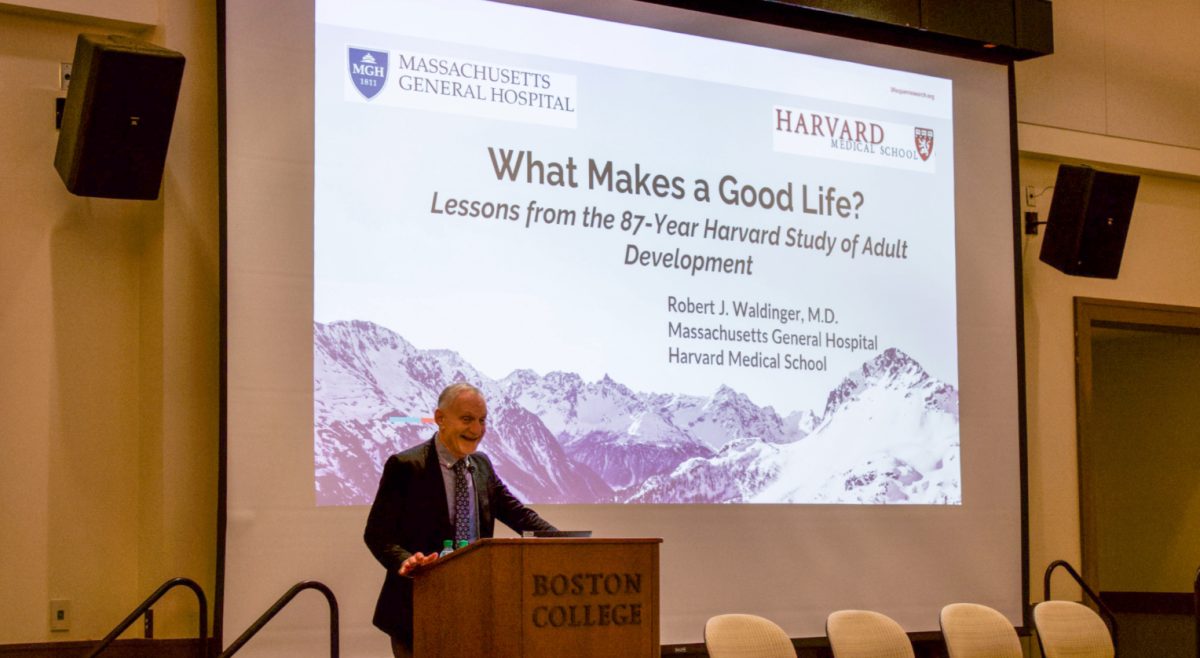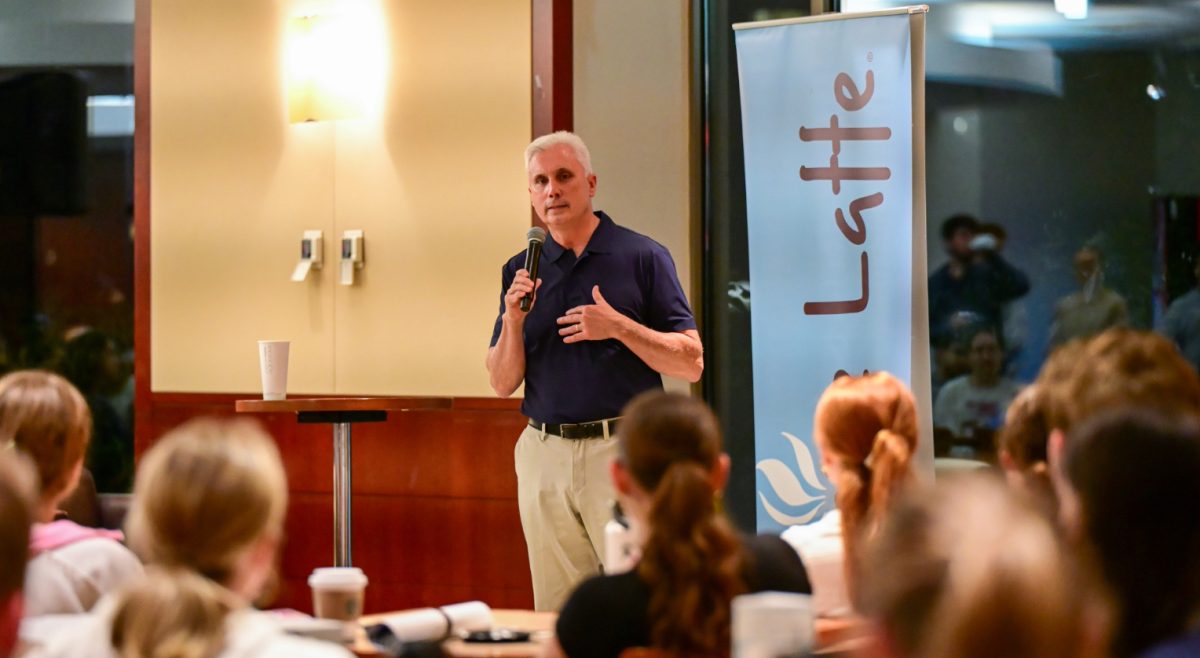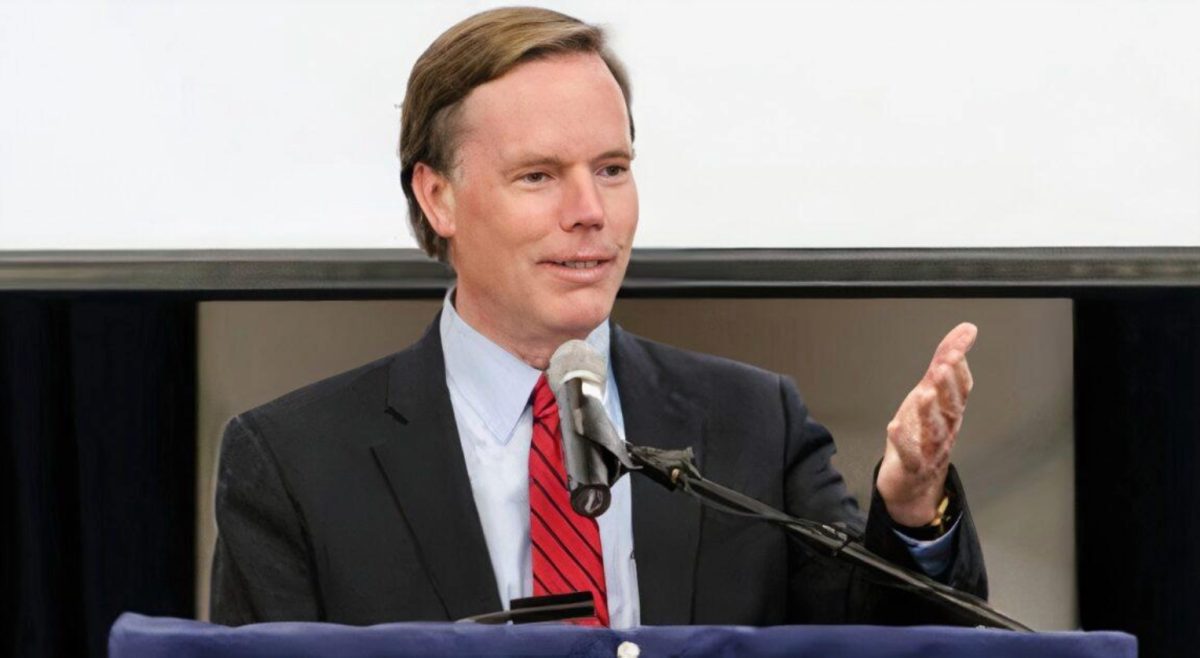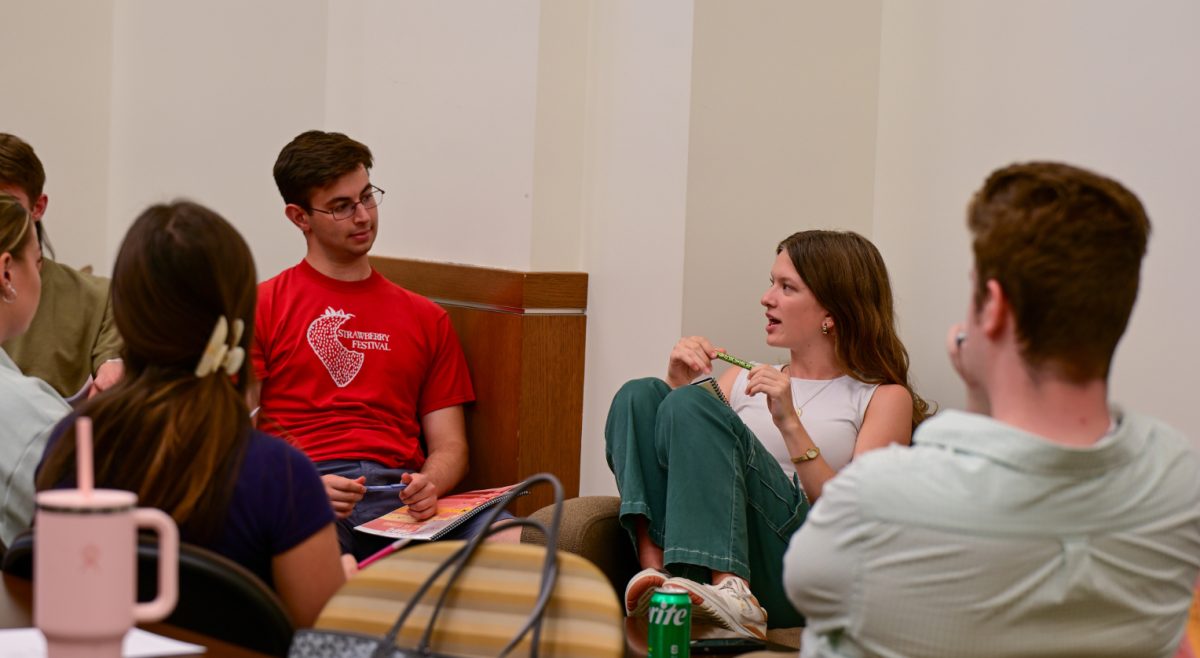“This is a business plan competition, and teams are being judged on four main categories,” Jack McCarthy, an e-board member of Start @ Shea and CSOM ’24, said. “Team, identification of market and problem, solution and go to market, and the feasibility and traction.”
Split came in first place, winning the $10,000 prize. DeFi-Able came second, winning $5,000, and SpotDrop placed third, winning $3,000. MCEE was the crowd favorite and also won $2,000.
The Edmund H. Shea Jr. Center for Entrepreneurship in the Carroll School of Management hosted the competition, where students delivered four-minute pitches, followed by a six-minute Q&A session.
To open the event, Arthur Brenninkmeijer, CSOM ’22, pitched his company SpotDrop—an app that allows users to find new places to eat based on reviews from friends they can trust.
“We’re building [SpotDrop] for young food lovers who want to rediscover their cities through the eyes of their friends,” Brenninkmeijer said.
Matthew Klein, MCAS ’25, Matthew Gordon, CSOM ’25, and Ryan Repka, CSOM ’25, founded Grapher—a company that also operates on the basis of trust. Grapher sells authentic items directly to its consumers at the item’s base price, ensuring consumers do not pay more than the item’s worth.
“My friend Ethan bought a Kris Bryant–signed autograph for $299,” Gordon said. “Ethan got ripped off. I sold that exact same Kris Bryant autograph … for $180 … the reason being, retail companies such as Fanatics have a complete monopoly over the industry.”
Another trio—Gianna Jarmain, MCAS ’23, Jack Russell, CSOM ’23, and Rhett Somers, CSOM ’23—founded a collaborative music platform called MCEE. The platform allows party guests to join a common queue where they can upvote and downvote songs, allowing them to contribute to music at parties and help alleviate pressure on hosts.
“We’re focusing on being able to collaborate on music and getting the most out of that whole experience,” Jarmain said. “We did a survey in the beginning, and music for, I think it was [70] percent of respondents, would dictate whether or not they were staying at that party.”
When asked about potential competition, Somers said the platform’s “crowdsourcing feature” is what sets it apart.
Following the recent NCAA policy change that now allows collegiate athletes to monetize their name, image, and likeness, Kevin Harrington, CSOM ’24, and Blake Kiefer, CSOM ’24, developed a subscription-based platform called The Athlete Pass where users can access exclusive content from their favorite athletes.
With over 800 music festivals in the United States annually, safety is a primary concern for attendees, according to Charles Swift and Charles Gambuzza, both CSOM ’25. The two founded Adrenoline—a safety drone service used for large events such as concerts and festivals.
“We propose a drone that is thoroughly equipped with optical zoom cameras and thermal vision to directly broadcast live footage to police and security, so they will, in turn, increase situational awareness, and they can more effectively put down any possible issues that may arise, creating a safe environment for all the concert goers,” Swift said.
Following Swift and Gambuzza, Hailey Wilcox, CSOM ’23, and Jack Moffatt, MCAS ’23, presented their platform DeFi-Able. Due to a lack of NFT portfolio evaluation organizations, Wilcox, and Moffatt said they founded DeFi-Able to appraise NFT portfolios.
“No company has posted an algorithm [to value NFT portfolios] yet like we are doing, to kind of inform evaluation, other than the last time it was sold for the full price of the entire project,” Wilcox said.
Jay Wadhwa and Jorge Dickens, both CSOM ’24 and the competition’s first-place winners, founded Split—an app that allows friends to split bills after a night out.
“Once you sign up with our app, you can choose to either get a physical or virtual card powered by Visa and then you use this card to essentially initiate the purchase,” Dickens said. “The host simply invites everyone in the session through our contacts integration … everyone that was invited to the session will receive a text with a deep link, and so once you select this deep link, you will be directed to a screen where you can simply select what you owe.”

